
Find Help
More Items From Ergsy search
-

Can genetics influence obesity?
Relevance: 100%
-

Obesity
Relevance: 72%
-

What causes obesity?
Relevance: 68%
-

What is the impact of obesity on mental health?
Relevance: 55%
-

How is obesity measured?
Relevance: 53%
-
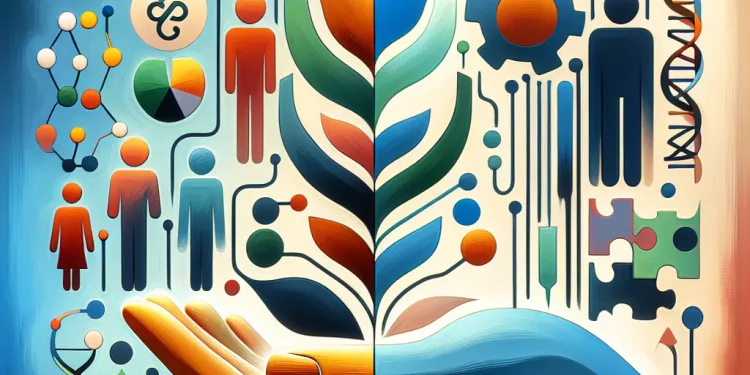
Is there a genetic component to autism?
Relevance: 51%
-
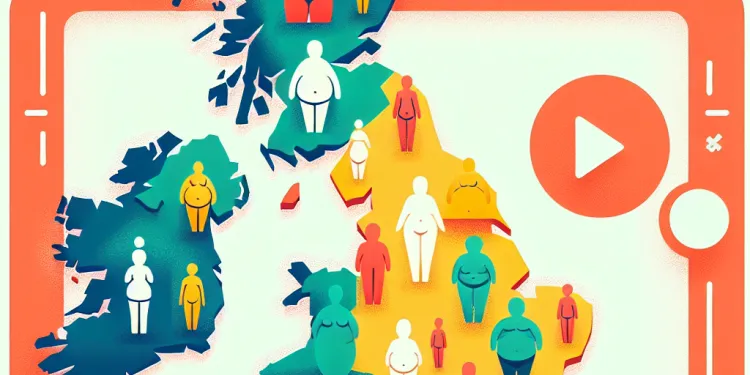
Is obesity more prevalent in certain regions of the UK?
Relevance: 51%
-

Is childhood obesity a concern in the United Kingdom?
Relevance: 51%
-

How can obesity be prevented?
Relevance: 51%
-

What treatments are available for obesity?
Relevance: 51%
-
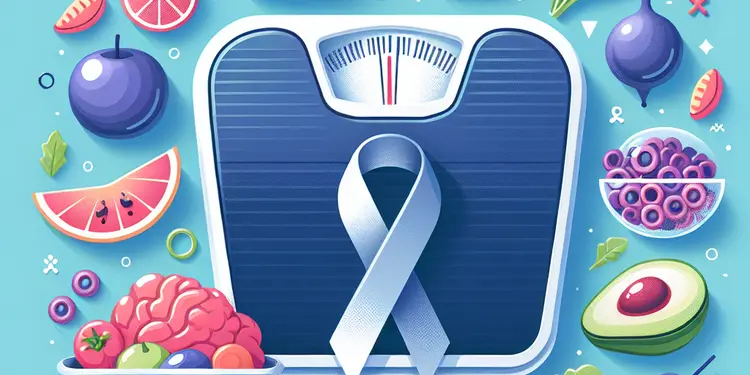
How does obesity affect bowel cancer rates?
Relevance: 50%
-

Do weight loss jabs work for all types of obesity?
Relevance: 50%
-

What are the current statistics on childhood obesity in the UK?
Relevance: 50%
-

What health risks are associated with obesity?
Relevance: 50%
-
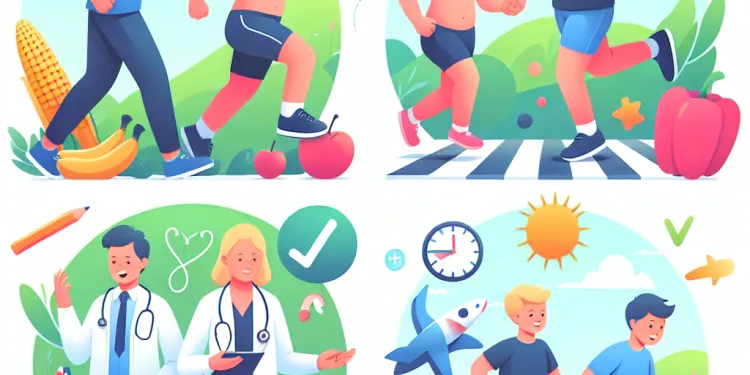
Is childhood obesity a concern in the United Kingdom?
Relevance: 49%
-

What impact has the sugar tax had on obesity rates?
Relevance: 49%
-

Are there any societal factors that contribute to obesity?
Relevance: 49%
-
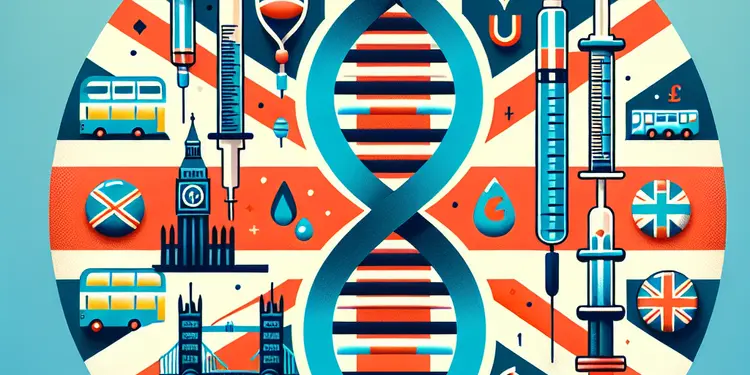
Is there a genetic predisposition to type 1 diabetes?
Relevance: 47%
-

Study Finds Alarming Increase in Childhood Obesity Rates Post-Pandemic
Relevance: 47%
-
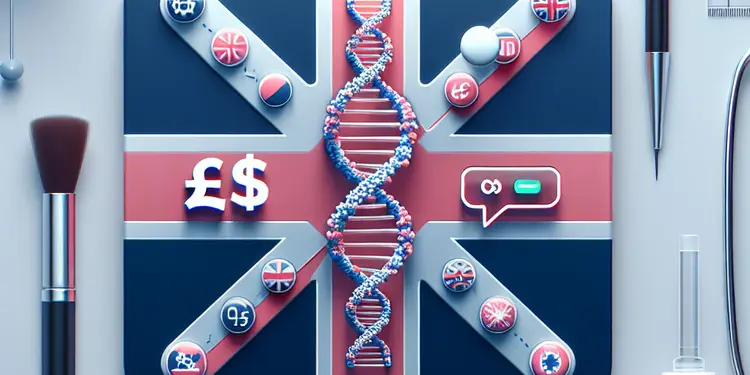
Is genetic screening available for cancer risk?
Relevance: 47%
-
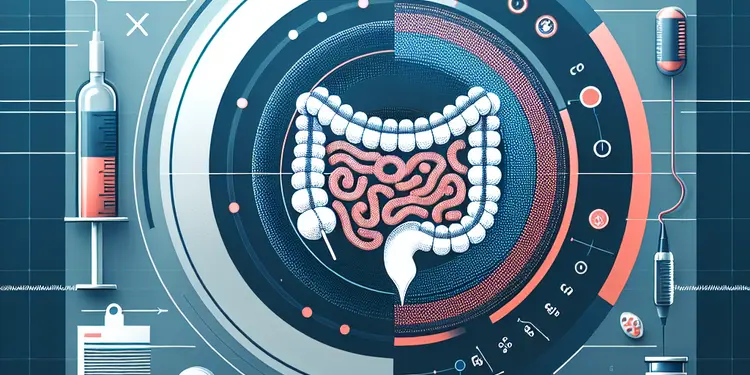
Is genetic testing available for colorectal cancer?
Relevance: 47%
-

What role do sugary drinks play in obesity?
Relevance: 46%
-

How important is physical activity in preventing obesity?
Relevance: 45%
-

What role does diet play in managing obesity?
Relevance: 44%
-
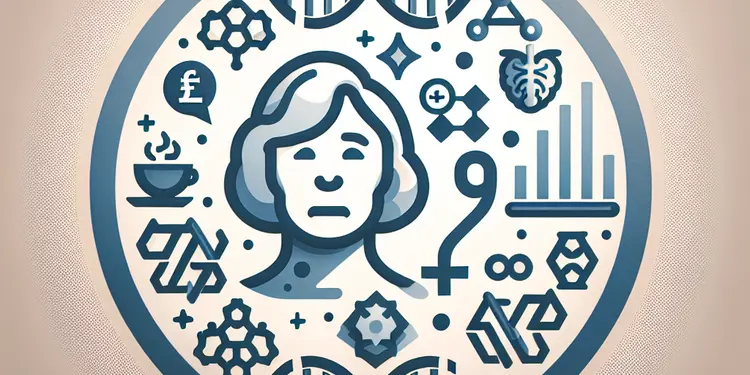
Do genetics play a role in dementia risk post-menopause?
Relevance: 44%
-
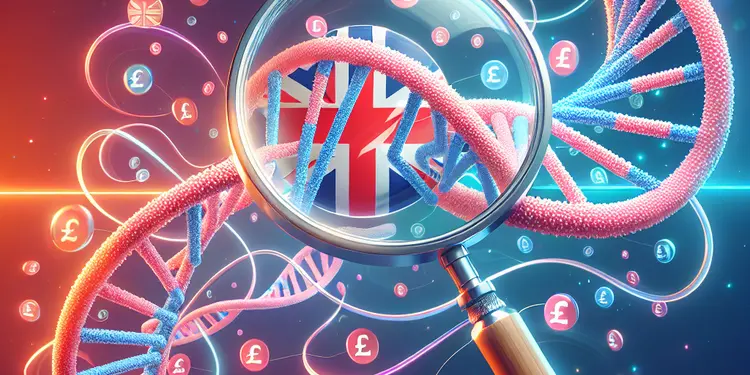
What is the role of genetic testing in Huntington's disease?
Relevance: 44%
-
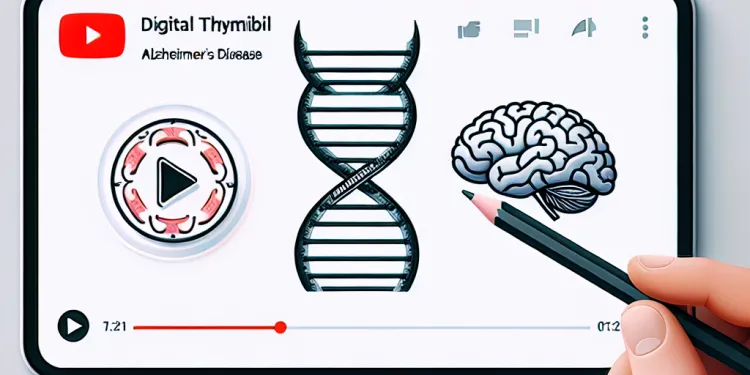
What role does genetics play in Alzheimer's disease?
Relevance: 43%
-

What role do genetics play in motor neurone disease?
Relevance: 42%
-

Taking a Genetic Family History - The Conversation (Bowel Cancer)
Relevance: 42%
-

Does genetic makeup affect how coffee impacts blood pressure?
Relevance: 39%
-

What causes Type 2 Diabetes?
Relevance: 29%
-
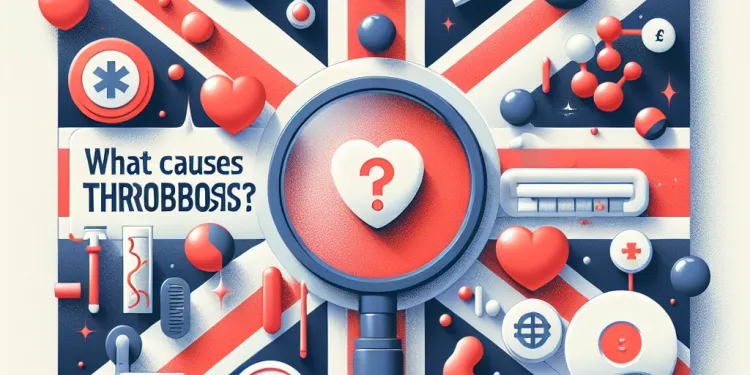
What causes thrombosis?
Relevance: 27%
-

Prader-Willi Syndrome | NHS
Relevance: 26%
-
How do genetic mutations cause mitochondrial disease?
Relevance: 26%
-
Do all genetic mutations in mitochondria cause disease?
Relevance: 26%
-

What factors are contributing to the increase in bowel cancer cases?
Relevance: 25%
-

What causes asthma?
Relevance: 25%
-

Who is at higher risk for thrombosis?
Relevance: 24%
-

What factors increase my risk of colorectal cancer?
Relevance: 24%
-

Are younger people being diagnosed with bowel cancer more frequently?
Relevance: 23%
Can Genetics Influence Obesity?
The prevalence of obesity has been increasing worldwide, becoming a significant public health concern. In the United Kingdom, like many other developed countries, lifestyles that involve high-calorie diets and low physical activity levels contribute significantly to rising obesity rates. However, genetics also plays a critical role in determining an individual’s susceptibility to obesity.
The Role of Genetics in Obesity
Genetic factors can influence various aspects of body weight regulation, including appetite control, energy metabolism, and fat storage. Several studies have identified numerous genes associated with obesity, such as the FTO gene, which is one of the most well-known. This gene has been linked to increased body mass index (BMI) and predisposes individuals to gain weight. Furthermore, research indicates that those with specific variations in their genetic makeup may process food differently, leading to more efficient fat storage.
Environmental Interactions
While genetics provides a framework, environmental factors heavily influence the manifestation of obesity. In the UK, the availability of energy-dense foods, societal norms favoring sedentary lifestyles, and economic factors contribute to obesity risk. The interaction between genes and environmental factors — known as gene-environment interaction — is crucial. For instance, individuals with a genetic predisposition to obesity may become obese under particular environmental conditions, whereas in different environments, their genetic predisposition may not lead to obesity.
Addressing Obesity Through Understanding Genetics
Understanding the genetic factors involved in obesity can help in developing personalized approaches to prevention and treatment. Genetic research can inform more effective public health strategies and interventions by identifying individuals at high risk of obesity early and providing tailored guidance. In the UK, this could involve personalized dietary advice or targeted support that considers an individual’s genetic risk alongside their lifestyle and socio-economic context.
Overall, genetics certainly influences obesity, but it works in tandem with lifestyle and environmental factors. For individuals in the UK and beyond, mitigating obesity risk involves a holistic approach that considers genetic predisposition as one of many contributing elements.
Can Genetics Affect Obesity?
Obesity means having too much body fat. More and more people around the world are becoming obese. This is a big health problem. In the UK and other countries, eating a lot of high-calorie foods and not moving much can cause obesity. But, our genes can also make us more likely to become obese.
How Do Genes Affect Obesity?
Genes are part of our DNA and can control how our bodies work. They can change how we eat, how we use energy, and how we store fat. Scientists have found many genes linked to obesity. One important gene is the FTO gene. It can make people more likely to gain weight. Some people have genes that make them store fat more easily.
How Environment and Genes Work Together
Even if genes make someone more likely to be obese, things around us also matter a lot. In the UK, easy access to unhealthy foods and less exercise can make obesity more common. How genes and our environment work together is very important. For example, if someone has genes that make them likely to gain weight, they might become obese if they eat unhealthy foods and do not exercise. But if they live differently, their genes might not cause obesity.
Using Genetic Information to Help with Obesity
Knowing how genes affect obesity can help us prevent and treat it better. Scientists can use this information to make special plans for people who might get obese. In the UK, doctors can use genetic information to give better advice about what to eat and how to stay healthy. This advice can be just right for each person, based on their genes and their lifestyle.
Genes do play a role in obesity. But, lifestyle and the environment are also important. For people in the UK and everywhere, staying healthy means considering genes, but also eating well and being active.
Frequently Asked Questions
Can genetics play a role in obesity?
Yes, genetics can influence a person's likelihood of becoming obese. Certain genes can affect metabolism, appetite, and how the body stores fat.
How much of obesity is due to genetic factors?
It is estimated that genetics account for 40-70% of the variation in body weight among individuals, although lifestyle and environment are also crucial factors.
Are there specific genes associated with obesity?
Yes, several genes have been linked to obesity, including FTO and MC4R, which influence appetite and energy balance.
If obesity runs in my family, am I destined to be obese?
Not necessarily. While genetics can increase the risk of obesity, factors such as diet, physical activity, and environment also play significant roles.
How do environmental factors interact with genetics in obesity?
Environmental factors such as diet, physical activity, and lifestyle choices can influence the expression of obesity-related genes, either exacerbating or mitigating genetic predispositions.
Can genetic testing help manage obesity?
While genetic testing can identify predispositions, effective obesity management often requires lifestyle changes. Genetic testing can sometimes inform personalised diet and exercise plans.
Is childhood obesity influenced by genetics?
Yes, childhood obesity can be influenced by genetics, but family lifestyle and diet also play critical roles in its development.
Can weight loss be harder for people with obesity-related genes?
Yes, individuals with certain genetic predispositions may find it more challenging to lose weight, but it is still possible with appropriate lifestyle changes.
Are there genetic tests available for obesity in the UK?
Yes, there are genetic tests available, but they are usually offered through private clinics for personalised nutrition and weight management plans.
Do all people with obesity have a genetic predisposition?
Not all obesity cases are due to genetic predisposition; lifestyle factors such as diet and physical inactivity are significant contributors as well.
Can genes affect how my body metabolizes food?
Yes, certain genes can influence how efficiently your body metabolizes food, which can affect weight gain and loss.
Can lifestyle changes overcome genetic predispositions to obesity?
Yes, while genetics can influence weight, healthy lifestyle choices regarding diet and physical activity can significantly mitigate genetic risks.
What role do hormones play in genetic obesity?
Hormones regulated by genes, like leptin and ghrelin, can influence hunger and metabolism, affecting body weight.
How important is family history in considering obesity risk?
Family history can be an important indicator of obesity risk, but it's also crucial to consider lifestyle and environmental factors.
Can personalised diets based on genetics be effective for weight loss?
Personalised diets that consider genetic information can sometimes be more effective, as they target specific metabolic needs and predispositions.
Do genes make people overweight?
Yes, our genes can make it more likely for someone to become very overweight. Some genes can change how we use food for energy, how hungry we feel, and how our body keeps extra fat.
Is being overweight caused by genes?
Some people are overweight because of their genes. Genes are like instructions in our body that make us look and act the way we do.
If your parents or grandparents are overweight, you might be too because of your genes. But, other things like what you eat and how much you move also matter.
If you want to know more, you can talk to a doctor. They can help you understand how genes and other things affect your weight.
What makes people weigh different amounts? It is thought that genes, or the instructions inside us that come from our parents, are a big reason. Genes might explain between 40 and 70 out of every 100 differences in how much people weigh. But the way we live and where we live are important too.
Do some genes make people gain weight easily?
Yes, scientists have found some genes that can make people more likely to be overweight. These genes are called FTO and MC4R. They can change how hungry we feel and how our body uses energy.
If my family is overweight, will I be too?
If many people in my family are overweight, does that mean I will be overweight too?
No, you can still stay healthy by eating good food and moving your body. Eating fruits, vegetables, and doing exercises like playing games or walking can help. Ask a doctor or a grown-up for help if you need it.
No, not always. Our genes can make us more likely to get obesity. But what we eat, how much we move, and where we live are very important too.
How do things around us and genes affect weight?
Some people are overweight because of their genes. Genes are like instructions in our body. They tell our body what to do.
Things around us, like food and activities, can also make us gain weight. This is called the environment. Eating lots of sugary foods or not getting enough exercise can make us heavier.
Genes and the environment work together. If your family has a history of being overweight, you can be more likely to be overweight too. But healthy eating and exercise can help you stay healthy.
It can help to use tools like pictures, simple charts, or apps that remind you to eat well and move. These can help you understand and make good choices for your health.
Things like what you eat, how much you exercise, and the way you live can change how genes related to obesity work in your body. This means they can make you more or less likely to be overweight, depending on your choices.
Can a genetic test help with weight problems?
A genetic test can look at your DNA, which is like a set of instructions for your body. This can tell you if you might have weight problems because of your genes.
Finding out this information might help doctors choose the best way to help you with your weight.
If you find reading hard, you can use tools that read the text out to you. Pictures can also help explain ideas.
Genetic tests can tell us if you might get obesity. But to manage obesity well, you usually need to change how you live. Sometimes, genetic tests can help create a diet and exercise plan just for you.
Do genes make kids overweight?
Yes, being overweight as a child can be linked to family genes. But how a family lives and eats is very important too.
Is it harder to lose weight if your body has special genes?
Some people have special genes that can make it harder to lose weight. Genes are like little instructions in your body that decide how it works. If you have these special genes, your body might want to stay heavier. But don't worry! There are ways to help.
You can talk to a doctor or a helper who knows about health. They can give good advice. Also, doing fun exercises and eating healthy foods can help. Remember, everyone is different, and that's okay!
Yes, some people have genes that can make losing weight harder. But you can still lose weight by changing some things you do every day.
Can doctors in the UK test your genes to find out if you might be overweight?
Yes, there are tests for your genes in the UK that can help understand if your body might make it easier to become overweight. These tests look at your DNA, which is like a special code inside you.
Doctors might use special tools and have good ideas to help you know what these tests mean. They can show how your body is different and tell you what things can help keep you healthy.
Yes, you can get special tests to look at your genes. These tests are usually from private clinics. They can help you with food and weight plans that are just for you.
Do all people with obesity have genes that make them gain weight?
Some people gain weight because of their genes. But not everyone with obesity has genes that cause it.
Eating healthy food and getting exercise can help everyone, even if genes make weight gain easier.
Talking to a doctor can help people understand more. Using apps or tools to track food and moves might help too.
Being overweight is not always because of your genes. How you live is important too. Eating healthy and being active helps a lot.
Do genes change how my body uses food?
Your body uses food to get energy. This is called metabolism. Genes are like instructions in your body. They can help say how your body uses food.
Some people have genes that make them use food differently. This can be why some people stay thinner or gain weight faster.
To understand your own body better, you can talk to a doctor. They can help you know more about your genes and metabolism.
You can also try tools that help you learn more about healthy eating. These tools can show you what foods are good for your body. They can help you stay healthy and feel good.
Yes, some tiny parts inside your body, called genes, can change how your body uses food. This can make it easier or harder to lose or gain weight.
Can Changing How We Live Help Even If We Have Genes That Make Us Gain Weight?
Yes, your genes can affect your weight. But making healthy choices with food and exercise can really help, even if your genes make it harder.
How do hormones affect genetic obesity?
Hormones are like messengers in your body. They tell your body when to feel hungry or full.
Sometimes, people are born with genes that make them more likely to be overweight. This is called genetic obesity.
Hormones can make it hard for people with genetic obesity to control their weight.
Here are some tips to help:
- Talk to a doctor about your weight. They can give you advice.
- Eat healthy foods like fruits and vegetables.
- Try to be active every day, like walking or playing outside.
Our bodies have special chemicals called hormones. Some of these hormones are controlled by our genes. Two important hormones are leptin and ghrelin. They help us feel hungry or full and decide how we use energy. This can change how much we weigh.
Is family history important for knowing if someone might be at risk of being overweight?
Family history can sometimes show if a person might get too much weight, called obesity. But it's also very important to think about how a person lives and the world around them.
Do diets based on genes help with losing weight?
Some diets are made just for you using your genes. This means the food plan is special to your body. These diets might help you lose weight. They use your genes to choose foods that are good for you.
If you want to learn more, you can try using tools that read text out loud or work with someone who can help explain it.
Eating plans made just for you can work better. They look at your genes to see what your body needs and what it might be sensitive to.
Useful Links
This website offers general information and is not a substitute for professional advice.
Always seek guidance from qualified professionals.
If you have any medical concerns or need urgent help, contact a healthcare professional or emergency services immediately.
Some of this content was generated with AI assistance. We’ve done our best to keep it accurate, helpful, and human-friendly.
- Ergsy carfully checks the information in the videos we provide here.
- Videos shown by Youtube after a video has completed, have NOT been reviewed by ERGSY.
- To view, click the arrow in centre of video.
- Most of the videos you find here will have subtitles and/or closed captions available.
- You may need to turn these on, and choose your preferred language.
- Go to the video you'd like to watch.
- If closed captions (CC) are available, settings will be visible on the bottom right of the video player.
- To turn on Captions, click settings .
- To turn off Captions, click settings again.
More Items From Ergsy search
-

Can genetics influence obesity?
Relevance: 100%
-

Obesity
Relevance: 72%
-

What causes obesity?
Relevance: 68%
-

What is the impact of obesity on mental health?
Relevance: 55%
-

How is obesity measured?
Relevance: 53%
-

Is there a genetic component to autism?
Relevance: 51%
-

Is obesity more prevalent in certain regions of the UK?
Relevance: 51%
-

Is childhood obesity a concern in the United Kingdom?
Relevance: 51%
-

How can obesity be prevented?
Relevance: 51%
-

What treatments are available for obesity?
Relevance: 51%
-

How does obesity affect bowel cancer rates?
Relevance: 50%
-

Do weight loss jabs work for all types of obesity?
Relevance: 50%
-

What are the current statistics on childhood obesity in the UK?
Relevance: 50%
-

What health risks are associated with obesity?
Relevance: 50%
-

Is childhood obesity a concern in the United Kingdom?
Relevance: 49%
-

What impact has the sugar tax had on obesity rates?
Relevance: 49%
-

Are there any societal factors that contribute to obesity?
Relevance: 49%
-

Is there a genetic predisposition to type 1 diabetes?
Relevance: 47%
-

Study Finds Alarming Increase in Childhood Obesity Rates Post-Pandemic
Relevance: 47%
-

Is genetic screening available for cancer risk?
Relevance: 47%
-

Is genetic testing available for colorectal cancer?
Relevance: 47%
-

What role do sugary drinks play in obesity?
Relevance: 46%
-

How important is physical activity in preventing obesity?
Relevance: 45%
-

What role does diet play in managing obesity?
Relevance: 44%
-

Do genetics play a role in dementia risk post-menopause?
Relevance: 44%
-

What is the role of genetic testing in Huntington's disease?
Relevance: 44%
-

What role does genetics play in Alzheimer's disease?
Relevance: 43%
-

What role do genetics play in motor neurone disease?
Relevance: 42%
-

Taking a Genetic Family History - The Conversation (Bowel Cancer)
Relevance: 42%
-

Does genetic makeup affect how coffee impacts blood pressure?
Relevance: 39%
-

What causes Type 2 Diabetes?
Relevance: 29%
-

What causes thrombosis?
Relevance: 27%
-

Prader-Willi Syndrome | NHS
Relevance: 26%
-
How do genetic mutations cause mitochondrial disease?
Relevance: 26%
-
Do all genetic mutations in mitochondria cause disease?
Relevance: 26%
-

What factors are contributing to the increase in bowel cancer cases?
Relevance: 25%
-

What causes asthma?
Relevance: 25%
-

Who is at higher risk for thrombosis?
Relevance: 24%
-

What factors increase my risk of colorectal cancer?
Relevance: 24%
-

Are younger people being diagnosed with bowel cancer more frequently?
Relevance: 23%


